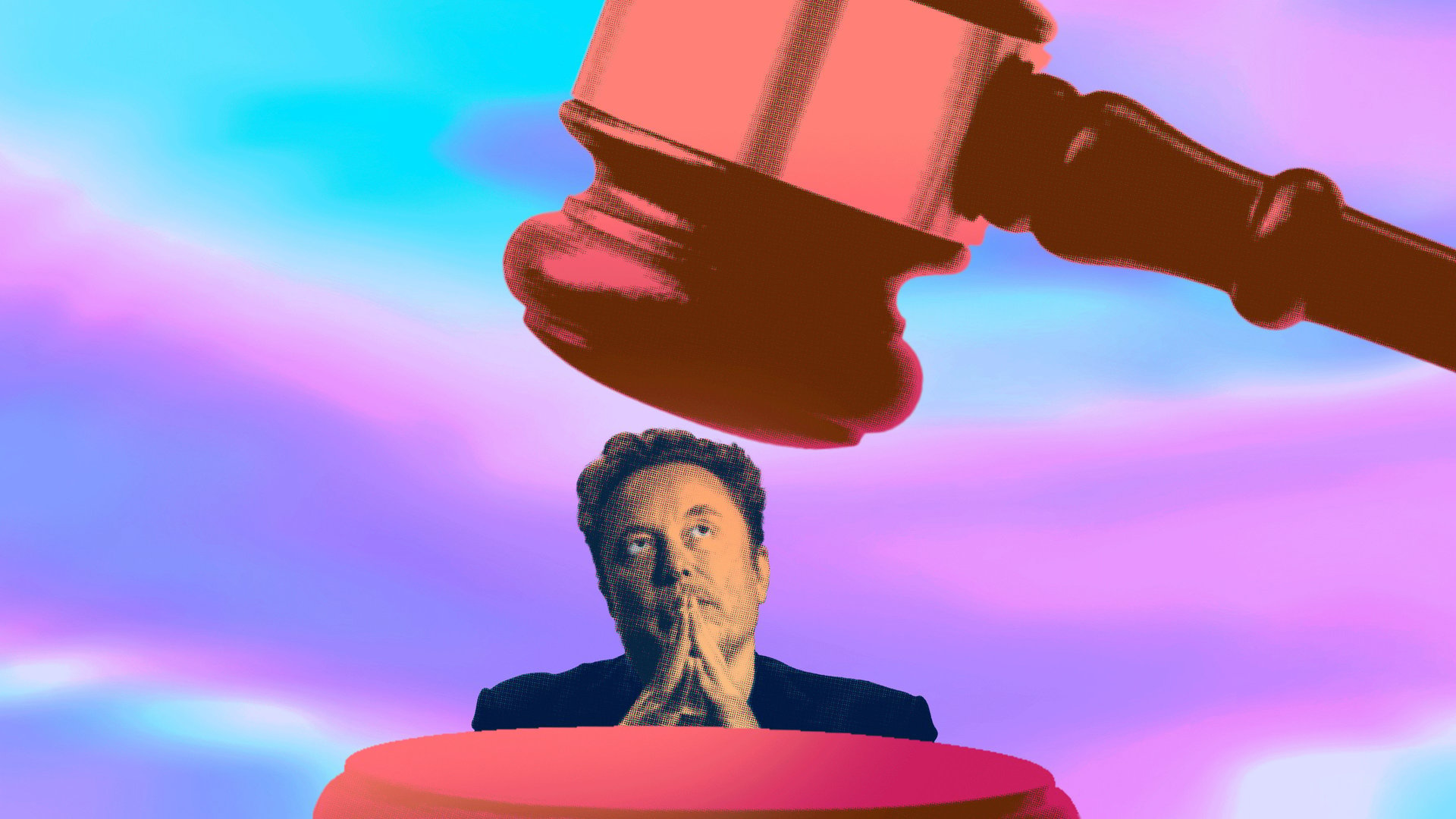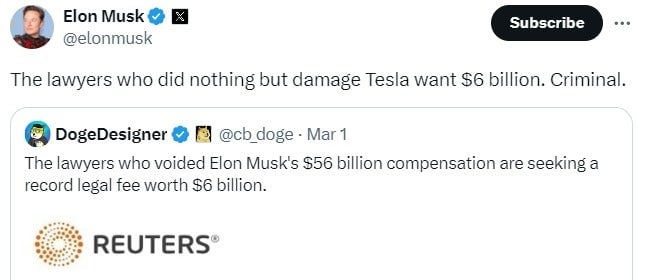Will Elon Musk get his money?
A Tesla shareholder vote last week doesn't bring an end to Elon Musk's never-ending payday saga

Hi, Quartz members!
Was the richest man in the world overpaid? Elon Musk claimed victory last week at Tesla’s annual meeting, where shareholders affirmed a pay package worth as much as $55.8 billion for their cult leader and CEO. With 72% of eligible shares voting in favor, the fusion between Musk and Tesla seemed complete. But the check isn’t in the mail yet (or to be more precise, the options warrants haven’t been issued yet). And Musk is headed back to court to try to convince a Delaware judge that the world’s largest executive compensation package ever is good for Tesla shareholders.
So what’s really going on here? Should he get the shares? Who brought the suit and why? And is it really now a slam dunk for Musk to cash in?
Let’s start with a bit of history. Back in 2018, when Musk and the Tesla board first agreed on a massive pay package, the company was growing, and Musk already owned about 21% of it. The board was stacked with friends he vacationed with, and even his own brother. The board’s compensation committee effectively just agreed to what Musk asked for. When the package came to a vote at the company’s annual meeting that year, holders of 73%
But one shareholder said the package was unfair and unwarranted, and he sued. His name is Richard Tornetta, he’s a former thrash metal drummer who was part of an unknown band called Dawn of Correction — and he owned just nine shares. It took almost four years for the case to come to trial, and another year or so for Judge Kathaleen McCormick of Delaware Chancery Court to issue a 200-page ruling. She said the Board had failed to hold arms-length negotiations with Musk, and set targets for his compensation that the firm was already on track to reach, with or without Musk. (His plan vested in 12 equal chunks, and every time Tesla’s market cap rose by another $50 billion, from its initial $50 billion to $600 billion, Musk got another tranche of options). “In the final analysis,” McCormack wrote, “Musk launched a self-driving process, recalibrating the speed and direction along the way as he saw fit.”
The case against the billions
The case against the pay: Judge McCormick’s 200-page opinion is both elegant and thorough in arguing that Musk did exactly what the company’s existing plans said the company would do (grow its market cap 12-fold), and devoted much of his time to other projects, from SpaceX and xAI to his 2022 purchase of Twitter. Musk had threatened shareholders and the board that if the pay package was overturned, he’d quit. But as Judge McCormick wrote, Musk owned 21.9% of Tesla when the board approved his compensation plan, an ownership stake that gave him “every incentive to push Tesla to levels of transformative growth.” In fact, she noted, Musk stood to gain more than $10 billion for every $50 billion bump in market cap. And he’d made it clear in her courtroom that he had no intention of leaving Tesla. “The Board never asked the $55.8 billion question,” wrote McCormick, “Was the plan even necessary to retain Musk and achieve its goals?”
What happens next
Tesla convinced an army of small investors and large investment funds to approve Musk’s $56 billion pay package. But now it has to persuade Judge McCormick to recognize it. Before Tesla can give the shares to Musk, there are likely to be months of litigation, and a final legal result in Musk’s favor is not certain and will not be quick. “This thing is not over,” Brian Quinn, professor at Boston College Law School, told Reuters. He said McCormick will require Tesla to prove that both Musk and the Board didn’t unduly influence the vote. “So when they show up saying it’s all good now, they’re going to have to come with receipts,” Quinn said. Last week, Tesla told McCormick that the new shareholder vote “significantly impacts” her January ruling, and it argued that both Tesla and Tornetta should explain their legal interpretations of the vote Greg Varallo, one of several lawyers representing Tornetta, told Reuters that the ratification will have “no legal effect” on the case. Tesla argues that it corrected the problem of Musk’s domination of the process to negotiate the pay package, when it created a special committee, composed only of one person, independent board member Kathleen Wilson-Thompson, that reviewed the 2018 pay deal and decided it was in the best interest of shareholders.
One more thing
Lawsuits are often about money, and often in more ways than one. Both Tesla and some anti-pay package shareholders, including CalPERS, are asking Judge McCormick to throw out the potential legal fees that may have been a major impetus for the case. Tornetta’s attorneys are asking for legal fees equivalent to 11% of Musk’s pay package, or $5.6 billion. Back in March, afterJudge McCormick’s decision was issued, they filed a brief with the court asking for their money.
“We are ‘prepared to eat our cooking,’” the Tesla plaintiff attorneys wrote in the court filing, arguing they deserve the money because they worked on a contingency basis for more than five years. If they lost they would have gotten nothing. The benefit to Tesla “was massive,” they said.

Thanks for reading! And don’t hesitate to reach out with comments, questions, or topics you want to know more about.
Have an electrified weekend!
— Peter Green, Weekend Brief writer